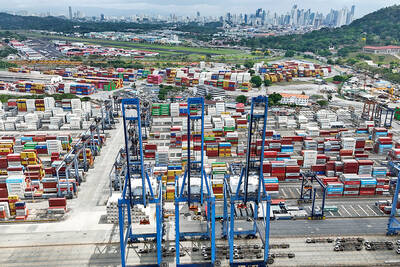British Prime Minister Tony Blair has asked officials to draw up plans for possible British military intervention in Sudan, where more than a million refugees are at risk from famine and disease.
Despite a heavy commitment of British armed forces in Iraq and other troublespots, Blair has had discussions with advisers for on-the-ground involvement of troops.
Blair is still hoping that diplomatic and political pressure on the Khartoum government will resolve the crisis without the need for military involvement.
But with conditions in hundreds of camps sharply deteriorating this week with the onset of torrential rain, governments across Europe as well as the US are facing calls for action to prevent a repetition of the Rwanda genocide 10 years ago that claimed a million lives. A UK government official involved in the discussions said Blair was being given regular updates on the condition of the refugees in the Darfur region.
"The prime minister has asked to look at all options that will save lives and not to rule out the military services," the official said.
Three options for military action have been put forward in London:
First, UK servicemen could help with the delivery of aid if the humanitarian agencies can no longer cope. At present, the Belgian air force is helping to fly in aid. The UK is using civilian planes because they are cheaper.
Second, the UK could offer logistical support for an African Union force of 60 monitors and a 300-strong protection force being deployed in the Sudan. The African Union force is short of equipment, including helicopters.
Third, British troops could protect refugee camps being harassed by marauding militias. This creation of safe zones would be the most risky of the options and would require the agreement of the Khartoum government, which would be reluctant to give it.
The fact that Blair is prepared to consider military options, even limited ones, so soon after the Iraq war may create controversy, not least among critics who already regard him as too interventionist. It would be his sixth military venture since becoming prime minister in 1997.
Asked about Sudan in the UK House of Commons on Wednesday, Blair did not mention the military option. But he said he "ruled absolutely nothing out."

THE TRAGEDY OF PUNCH: Footage of the seven-month-old Japanese macaque has gone viral online after he was rejected by his mother and formed a bond with a soft toy A baby monkey in Japan has captured hearts around the world after videos of him being bullied by other monkeys and rejected by his mother went viral last week. Punch, a Japanese macaque, was born in July last year at Ichikawa City Zoo. He has drawn international attention after zookeepers gave him a stuffed orangutan toy after he was abandoned by his mother. Without maternal guidance to help him integrate, Punch has turned to the toy for comfort. He has been filmed multiple times being dragged and chased by older Japanese macaques inside the enclosure. Early clips showed him wandering alone with

Australian Prime Minister Anthony Albanese yesterday said he did not take his security for granted, after he was evacuated from his residence for several hours following a bomb threat sent to a Chinese dance group. Albanese was evacuated from his Canberra residence late on Tuesday following the threat, and returned a few hours later after nothing suspicious was found. The bomb scare was among several e-mails threatening Albanese sent to a representative of Shen Yun, a classical Chinese dance troupe banned in China that is due to perform in Australia this month, a spokesperson for the group said in a statement. The e-mail

TENSIONS: The march went ahead without clashes, but arrests were still possible as police investigate suspects behind Nazi salutes, racist slurs and homophobic insults Thousands of people on Saturday marched in southeastern France under heavy security in tribute to a far-right activist whose killing, blamed on the hard left, has put the country on edge. The crowd — many wearing black and some covering their lower faces with masks — marched through the city of Lyon carrying flowers and placards bearing pictures of Quentin Deranque and the words: “justice for Quentin” and “the extreme left kills.” The 23-year-old died from head injuries following clashes between radical left and far-right supporters on the sidelines of a demonstration against a politician from the left-wing France Unbowed

‘OCCUPATION’: Hong Kong said it had lodged ‘stern protests’ with Panama’s consulate, and would ‘staunchly support’ the rights and interests of Hong Kong companies Panamanian President Jose Raul Mulino on Monday ordered the temporary occupation of two ports run by a unit of CK Hutchison Holdings Ltd following the Supreme Court’s ruling against the firm’s concession, escalating a dispute that has become a proxy battle between the US and China in Latin America. Mulino said in a speech that the administration and operation of the two ports on the strategic Panama Canal is to revert to the country’s National Maritime Authority to ensure their uninterrupted, safe and efficient operation. The occupation covers movable equipment at the ports and does not mean a definitive loss of